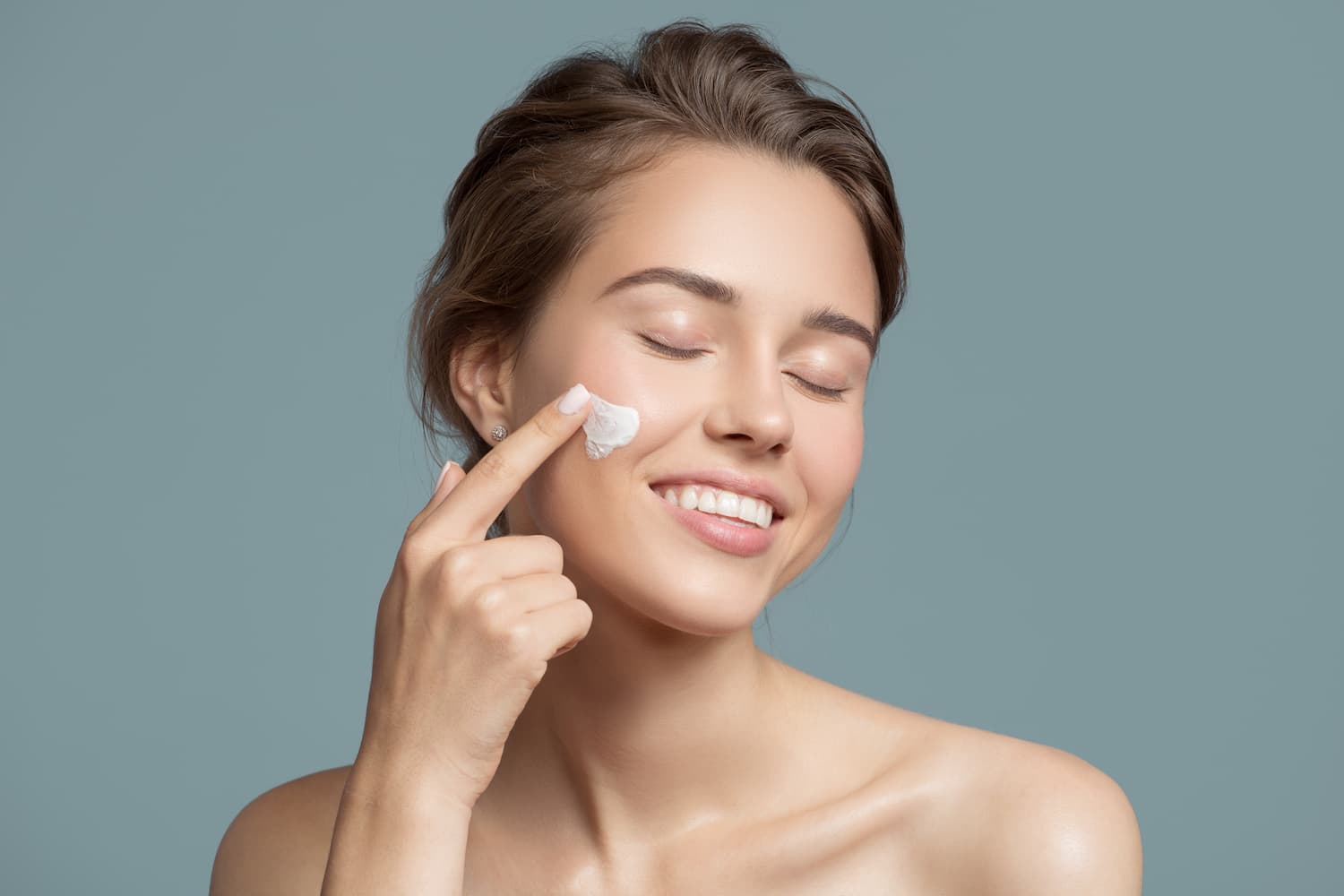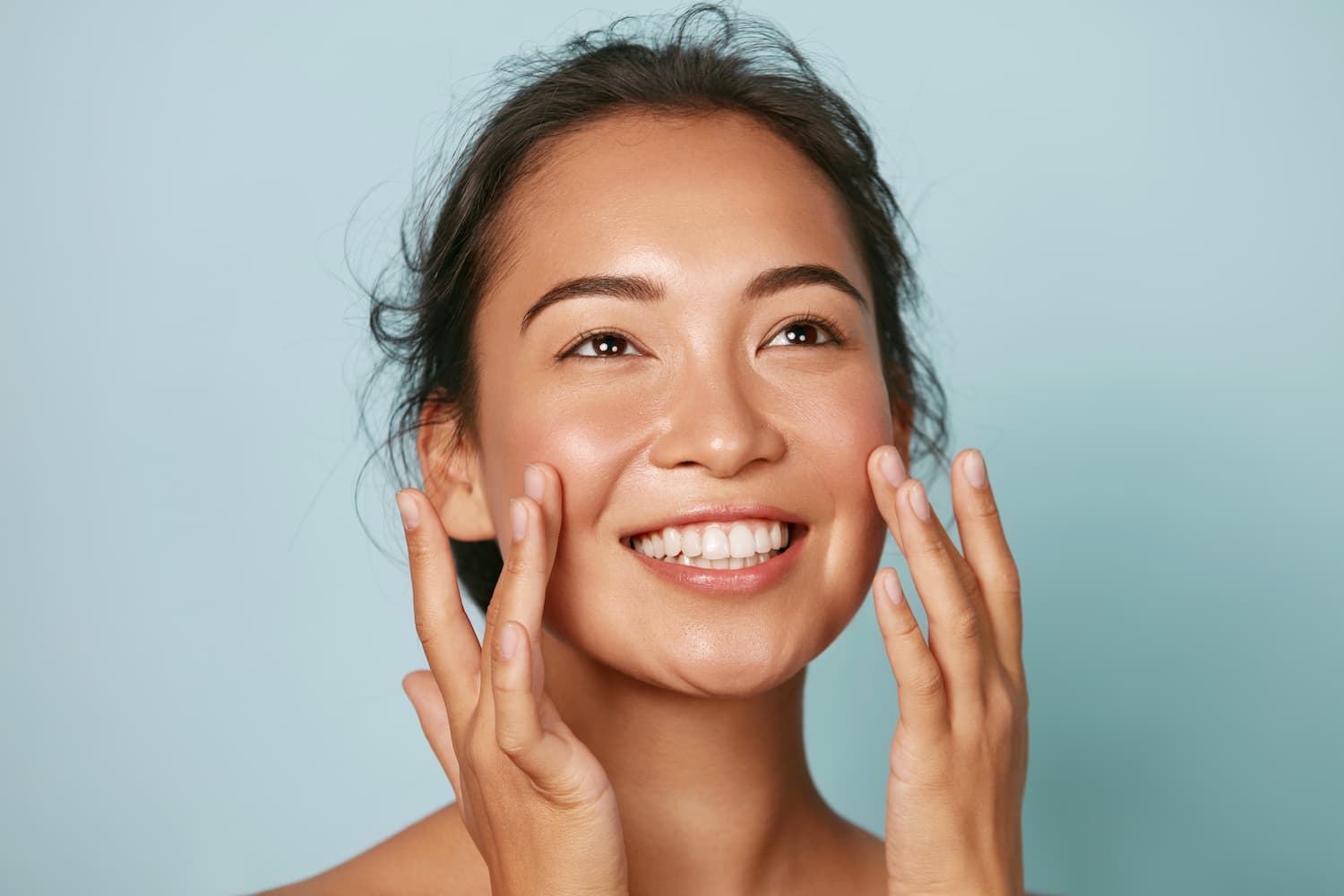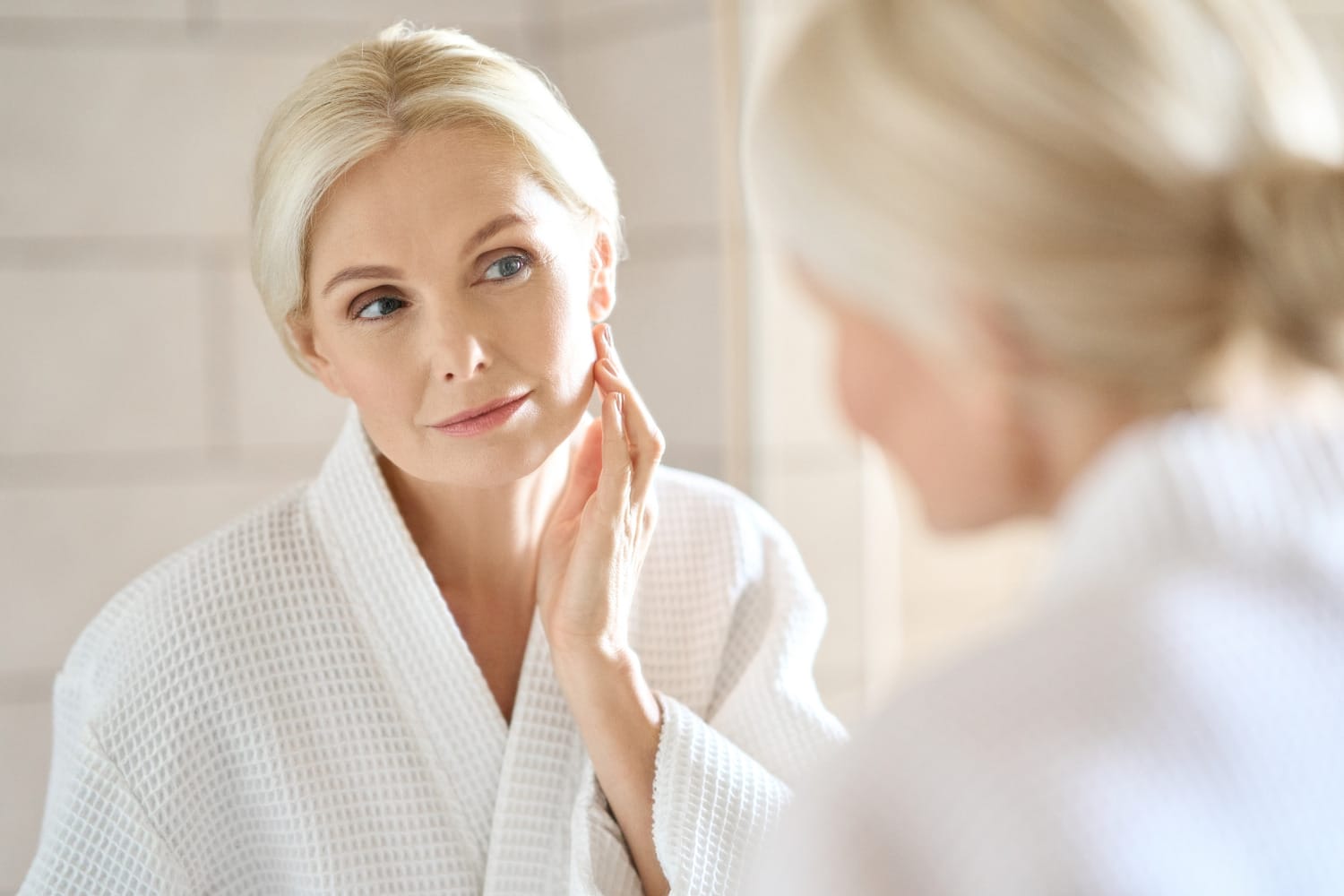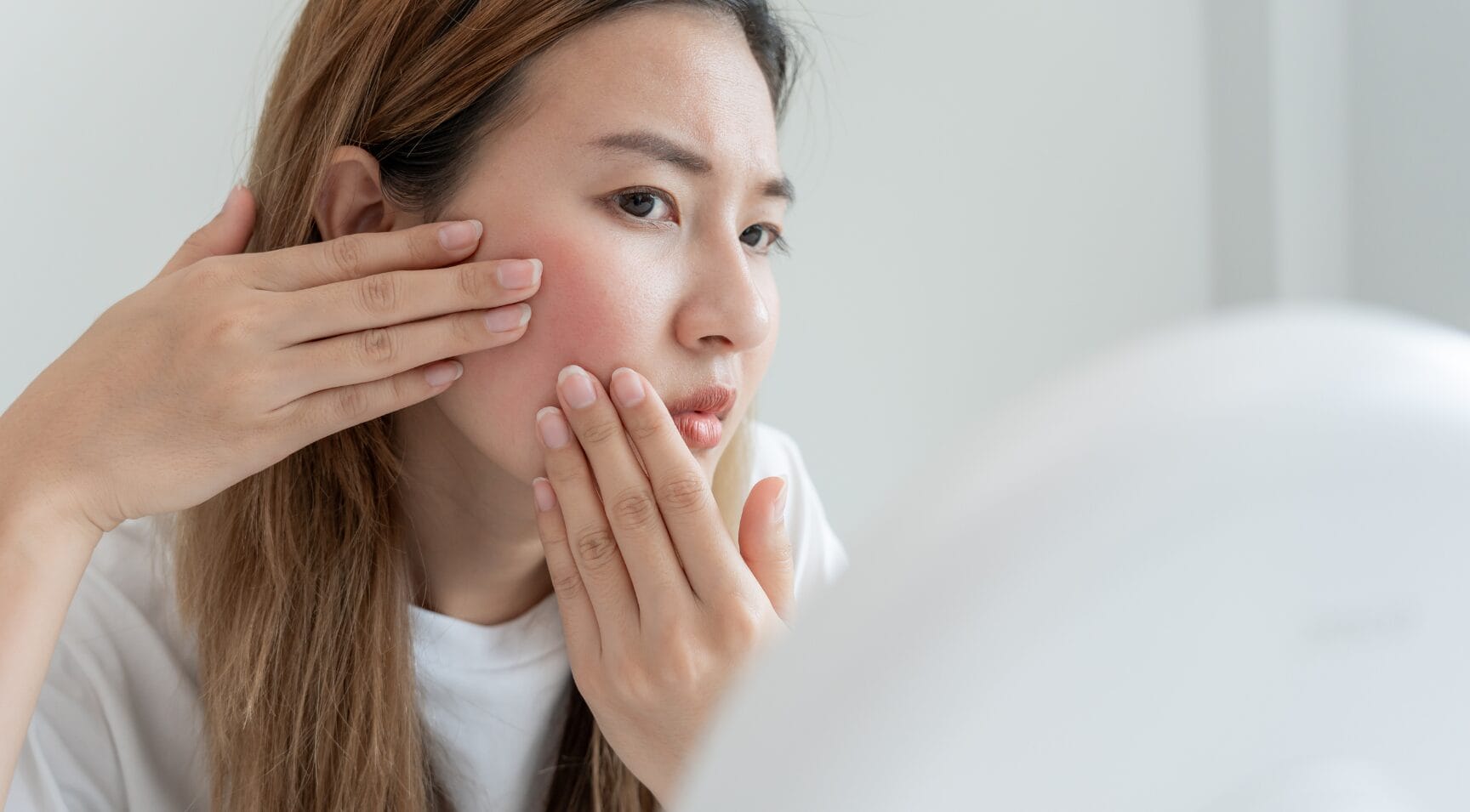Retinol and tretinoin, both vitamin A derivatives, help minimise fine wrinkles, smooth skin texture, and cure acne. While standard formulas are available, customised medications often deliver superior results with less irritation. Prescription tretinoin works directly as retinoic acid, accelerating skin rejuvenation, stimulating collagen, and fixing pigmentation. Meanwhile, the less harsh retinol must first convert inside the skin before becoming active.
When comparing retinol vs tretinoin’s effects, both depend on skin type, concern, and sensitivity. The availability of both potent tretinoin and gentler retinol provides options for individuals seeking healthier, brighter-looking skin, tailored to their needs.
What Are Retinoids?

Retinoids are a family of vitamin A-derived compounds known for enhancing skin cell turnover, boosting collagen production, and treating various skin conditions, including acne and signs of ageing. Among them, tretinoin and retinol are two of the most widely used, but they differ in strength, activation process, and effects.
Although standard forms exist, the concentration and combination of ingredients can be adjusted to meet individual needs and skin sensitivity. This helps achieve maximum results with minimum side effects.
Retinol
Retinol is a widely available over-the-counter retinoid that must first convert into retinoic acid within the skin before becoming active, which can take several weeks. This slower activation process makes it milder, allowing for gradual improvements in collagen production, skin texture, and fine lines. Its gentle nature makes it suitable for individuals with sensitive skin or those new to retinoids.
Unlike mass-produced pharmaceuticals, which come in standard dosages, compounded medications are custom-made to provide the appropriate strength and composition for each patient. For example, topical finasteride is used to help with hair loss and might have less side effects than the oral treatment.
Tretinoin
Unlike retinol, tretinoin is already in its active form, meaning it works faster and delivers more noticeable results. Due to its strength, tretinoin is typically prescribed for more severe skin concerns but may irritate sensitive skin. According to Stephen Clark from the University of Wales College of Medicine, tretinoin, also known as all-trans-retinoic acid, is a potent prescription retinoid used to treat acne, fine lines, and hyperpigmentation.
Tretinoin vs Retinol: What's the Difference?

Both retinol and tretinoin are retinoids that induce the skin to regenerate itself. However, they differ greatly in strength, availability, and mode of action. The choice depends on your skin type, tolerance, and skin care purposes.
Strength & Potency
In comparing tretinoin vs retinol, the former retinoid is much more powerful since it works immediately as retinoic acid without needing to be converted in the skin. In fact, a study by London Medical's Dr. Spierings in London proves tretinoin to be perhaps the most effective and most studied retinoid on the market for the treatment of photoageing.
Retinol, on the other hand, must be metabolised to retinoic acid within the skin to be effective. This diminishes its impact and is a milder alternative, better for sensitive skin or those just starting to use retinoids. While its effect appears to be slower, its reduced risk of irritation makes it an acceptable alternative for most. However, different prescription doses of tretinoin are available, while retinol products come in various strengths.
Availability
Due to its high potency and potential side effects, tretinoin is only available with a prescription. A healthcare professional’s supervision ensures proper usage and minimises the risk of irritation or adverse reactions. In contrast, retinol is commonly accessible over-the-counter in many skincare products. However, the concentration of retinol may vary substantially, altering its efficacy.
Meanwhile, compounding pharmacies can create retinoid treatments specific to each person's skin type and needs. This personalised approach allows individuals to use a strength bespoke to their needs, balancing effectiveness with potential irritation.
Benefits Comparison

Anti-ageing Benefits
Since retinoids induce collagen synthesis and skin renewal, retinol and tretinoin enhance elasticity and reduce fine wrinkles and lines. Tretinoin produces faster, more dramatic results than retinol's gradual, cumulative effect.
Acne Treatment
Tretinoin works well for moderate to severe acne because it keeps pores from getting clogged and prevents inflammation from occurring. Although retinol can be effective for acne, it works more slowly and is less potent than tretinoin.
Collagen Production & Skin Elasticity
Both retinoids stimulate collagen production, which is required to keep the skin tight and youthful. Tretinoin's direct effect stimulates collagen production more than retinol and is responsible for more dramatic skin renewal in the long run.
Anti-inflammatory Activity
Retinol has anti-inflammatory activity but is not as potent as that of tretinoin. Research conducted by Nicholas Schmidt, PhD, of Medicis Pharmaceutical Corporation, discloses that tretinoin has strong anti-inflammatory activity and, hence, is extremely effective in blocking redness and swelling caused by acne.
Skin Cell Turnover & Brightness
Both retinol and tretinoin increase the turnover rate of skin cells, enabling the removal of dead skin cells and the revealing of smoother, brighter-looking skin. Tretinoin is quicker in its action, with results apparent sooner than retinol.
Pore Unclogging & Prevention of Breakouts
Retinol helps prevent clogged pores and its milder nature makes it suitable for sensitive skin. Meanwhile, based on a study by Albert M. Kligman MD, PhD from the University of Pennsylvania, Philadelphia, tretinoin is very effective in lessening comedone formation, one of the leading causes of acne.
Conversion Process
Retinol must be converted to retinoic acid first before it is active in the skin, and therefore, its effect is delayed. Malwina Zasada et al. of the Medical University of Lodz, Poland, claim that it is a two-step oxidation in target organ cells to transform retinol into an active form.
On the other hand, tretinoin exists in an active form as retinoic acid, and hence, it can produce an effect immediately after application. This immediate action makes tretinoin highly effective, but also more likely to cause irritation than the slower-acting retinol.
Despite their differences, tretinoin and retinol are often compared because they play similar roles in skincare. Because both are popular options for boosting skin health, it's vital to investigate their shared characteristics to better understand how they function and what to anticipate when adding them to your regimen.
What are the Similarities of Tretinoin and Retinol?
 Both retinol and tretinoin are vitamin A derivatives that are also commonly used in skincare treatments to promote skin renewal, stimulate collagen production, and improve overall skin health. Although they work at different strengths and speeds, they share some of the same key benefits that make them effective for various skin concerns.
Both retinol and tretinoin are vitamin A derivatives that are also commonly used in skincare treatments to promote skin renewal, stimulate collagen production, and improve overall skin health. Although they work at different strengths and speeds, they share some of the same key benefits that make them effective for various skin concerns.
- Anti-ageing Benefits
Retinol and tretinoin have both been shown to lessen wrinkles and fine lines by promoting the synthesis of collagen. It smoothens and tightens the skin, giving it a less wrinkled and younger look. In a study by Malwina Zasada of the Medical University of Lodz in Poland, it was observed that both the 0.3% and 0.5% serums of retinol improve skin elasticity and narrow wrinkles, but greater concentrations tend to have greater effects.
- Acne Treatment
Retinoids bypass clogged pores, control oil production, and minimise breakouts. Alessia Villani and colleagues at Federico II University in Naples, Italy, conducted a study that utilised a retinol-filled gel for treating mild acne. After two months, study participants experienced an improvement in acne lesions, proving the efficacy of retinol for treating acne skin.
- Skin Brightness & Texture
Both retinol and tretinoin increase the turnover of skin cells, which normalises skin tone, texture, and hyperpigmentation. Their exfoliating action also leads to a brighter, more radiant complexion in the long run.
- Gradual Use & Sun Protection Significance
Because retinoids are found to initially irritate and increase the sensitivity of the skin to the sun, dermatologists recommend introducing them slowly into a skincare routine. Sunscreen use every day is required to protect the skin from the potential UV damage while using retinoids.
Regardless of whether it is for the prevention of ageing, the regulation of acne, or overall skin improvement, tretinoin and retinol both have science-supported benefits for healthier, more resilient skin.
- Overall Effectiveness & Research Findings
Both tretinoin and retinol improve the appearance of your skin, reduce pimples, and fight signs of ageing, but they work in different ways. As an active retinoic acid, tretinoin works faster and shows results in just a few weeks. This makes it great for severe acne, deep lines, and discolouration, but it is also irritating. Retinol needs to be changed into retinoic acid, which takes a long time to work but is better for beginners or people with sensitive skin because it is softer.
Double-blind, randomised research by Michael Babcock, MD, of Thomas J. Stephens & Associates, compared retinol-derived and tretinoin-derived products on moderate to severe photodamage. Although tretinoin was somewhat better, they both significantly helped the look of the skin. Deciding between retinol or tretinoin depends on one's need, skin tolerance, and long-term objectives. Daily application is the key to obtaining and sustaining results.
Both tretinoin and retinol are great for your skin but can cause some temporary side effects. Understanding these potential side effects can help you manage them effectively and incorporate either product into your routine more successfully.
What are the Side Effects of Tretinoin vs Retinol?

Tretinoin and retinol, although beneficial for improving skin texture and curing acne, may have transient adverse effects while the skin adapts to their intensity.
Hyperpigmentation
Retinoids commonly treat hyperpigmentation and dark spots but can aggravate skin discolouration if improperly used. Excessive use of tretinoin and retinol, failure to use sunscreens, or use of high-strength tretinoin on sensitive skin are all reasons for post-inflammatory hyperpigmentation (PIH). PIH occurs when inflammation or irritation triggers the skin to produce excess melanin. People with darker skin tones are most at risk for PIH, which makes sun protection essential when using retinoids.
Irritation
Redness, dryness, peeling, flaking, and heightened sensitivity are common symptoms of the "retinoid purge." This is a brief increase in breakouts and skin irritation while the skin adapts to the retinoid, a typical procedure for some people. However, if the discomfort is severe or chronic, see a dermatologist.
Redness and peeling, says India's Department of Pharmacology's Siddharth Mukherjee, may persist for weeks or even months as the skin adjusts. Tretinoin is more caustic and is more likely to create more severe reactions than retinol, which is less potent but also irritates, particularly in new users.
Photosensitivity
Retinoids enhance the turnover of skin cells, making the newer skin cells vulnerable to ultraviolet rays. This heightened photosensitivity means you are at risk for sunburn, inflammation, and progressive sun damage, especially without sun protection.
A broad-spectrum sunscreen with an SPF of at least 30 should be applied every day. Broad-spectrum implies that it blocks both UVA and UVB rays, which is critical while taking retinoids.
Using a minimum SPF of 30 daily is essential when using tretinoin or retinol to prevent premature ageing, pigment issues, and potential skin injury. Frequent sun exposure without protection can counteract the benefits of retinoids and lead to further skin problems.
Pregnancy Complications
Although retinol and tretinoin are both generally discouraged during pregnancy, tretinoin is usually thought to pose a more significant danger due to its strength. Given its lower potency, retinol may seem to be a safer substitute. However, there is little evidence to support either claim. According to a study on NCBI, it is advised to consult a healthcare expert about safe alternatives.
Side effects may typically be reduced by modifying the strength or formulation of the retinoid, which a compounding pharmacy can tailor to each individual's skin requirements.
Who Should Take Tretinoin & Retinol?
 Tretinoin is best suited for individuals with various skin issues, such as sun spots, wrinkles, and acne. It effectively unclogs pores, minimises excess oil, and treats mild to moderate acne. It is also used for anti-ageing because it can assist the skin in regenerating itself and enhancing its texture.
Tretinoin is best suited for individuals with various skin issues, such as sun spots, wrinkles, and acne. It effectively unclogs pores, minimises excess oil, and treats mild to moderate acne. It is also used for anti-ageing because it can assist the skin in regenerating itself and enhancing its texture.
Because it is milder, retinol is best used by beginners and those with dry or sensitive skin. It fades fine lines, refines texture, and even helps cure mild acne, so it is ideally suited for youthful signs of ageing. Since retinol works slowly, it allows the skin to acclimate first before progressing to stronger retinoids like tretinoin. It is also less likely to irritate, so it is less likely to cause severe peeling, redness, or dryness.
If your needs fall between standard over-the-counter retinol and prescription tretinoin, a customised product, like a specialty preparation from a compounding pharmacy, could be a fantastic means of achieving optimal results with fewer irritations.
How to Use Tretinoin & Retinol Safely & Effectively
 To minimise irritation and maximise efficacy, start with tretinoin or retinol 2–3 times a week and progress to daily use as tolerance is developed. Use a pea-sized amount on the entire face—more will not be more effective, but it may irritate.
To minimise irritation and maximise efficacy, start with tretinoin or retinol 2–3 times a week and progress to daily use as tolerance is developed. Use a pea-sized amount on the entire face—more will not be more effective, but it may irritate.
Apply tretinoin or retinol on dry skin since wet skin will absorb more product and lead to irritation. To minimise peeling and dryness, apply a gentle moisturiser. Since it makes the skin more sensitive to the sun and breaks down when exposed to sunlight, it should be applied at night.
To avoid sunburn and additional skin damage, use a broad-spectrum sunscreen with at least SPF 30 daily. Avoid using tretinoin with harsh exfoliants, benzoyl peroxide, or astringent acids without seeing a dermatologist. For optimal results, use the correct application methods and choose the appropriate formulation for your skin.
Can You Use Tretinoin & Retinol Together?
For the majority of people, it is typically not advised to combine tretinoin with retinol because of the significant risk of irritation. A dermatologist may, however, sometimes recommend a particular routine. A healthcare expert should always be consulted before mixing these products.
To reduce irritation, it is advisable to alternate if both are to be used regularly. A few dermatologists also use a combination of tretinoin and retinol in graduated amounts, but this needs to be done only under professional guidance to prevent unwarranted damage to the skin.
However, if you are experiencing persistent discomfort or are unsure about the best strength, see a healthcare physician or a compounding pharmacy. They may provide professional advice and build custom formulas based on your individual skin requirements, resulting in a more pleasant and successful tretinoin experience.
Consult a Compounding Pharmacy for Bespoke Solution
 Deciding between the potent effects of tretinoin and the gentler approach of retinol, or finding the right concentration, often requires professional guidance. Consulting a healthcare practitioner, perhaps an online dermatologist for expert advice tailored to your specific skin goals and history, is a crucial first step.
Deciding between the potent effects of tretinoin and the gentler approach of retinol, or finding the right concentration, often requires professional guidance. Consulting a healthcare practitioner, perhaps an online dermatologist for expert advice tailored to your specific skin goals and history, is a crucial first step.
At Roseway Labs, we partner directly with these prescribers. Based on their assessment – whether recommending tretinoin, retinol, or a unique strength – our compounding pharmacy then crafts your bespoke medication. This ensures your custom tretinoin or retinol blend perfectly matches your skin's needs and tolerance for optimal results from your chosen retinoid therapy. If you need personalised medications, contact us to learn more about our bespoke solutions.